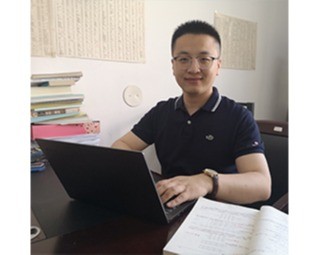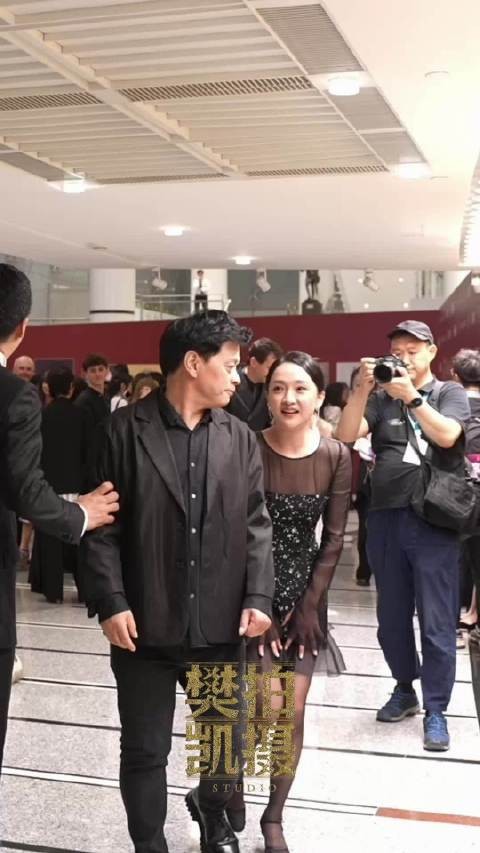张可佳 教授

张可佳,博士,教授,硕士生导师,黑龙江省优秀青年基金获得者,黑龙江大学杰出青年基金获得者。主要从事密码协议设计与分析、量子计算与量子信息理论、网络空间安全等相关领域研究。主持国家自然基金项目2项、省部级科研项目10项、厅局级项目3项,指导学生获得黑龙江大学科研创新基金5项。在中国科学、Physical Review A、Quantum Information Processing等SCI期刊发表论文50余篇,他引300余次,出版学术专著1部。
————————————————————————————————————————————
一、教育经历
2005.09—2009.07 北京邮电大学理学院数学与应用数学系,理学学士;
2009.09—2011.07 北京邮电大学理学院代数与密码学方向,理学硕士(直博),导师:朱萍教授;
2011.09—2015.07 北京邮电大学网络与交换技术国家重点实验室, 密码学博士,导师:温巧燕教授;
2016.11—2022.07 哈尔滨工程大学计算机学院,博士后,合作导师:马春光教授、冯光升教授;
2016.12—2017.12 新加坡国立大学量子技术中心,访问学者,合作导师:Kwek Leong Chuan教授;
2020.09—2021.08 清华大学物理系,访问学者,合作导师:龙桂鲁教授;
————————————————————————————————————————————
二、工作经历
2015.07—2017.08 黑龙江大学数学科学学院,讲师;
2017.09—2020.08 黑龙江大学数学科学学院,副教授;
2020.09—2021.08 黑龙江大学数学科学学院,教授(资格);
2021.09—至今 黑龙江大学数学科学学院,教授;
————————————————————————————————————————————
三、学术兼职
中国密码学会教育与科普工作委员会委员,中国计算机学会量子计算专业组执行委员,中国通信学会量子通信专委会委员,黑龙江省计算机学会物联网专委会秘书长、网络空间安全专委会委员、青年工作委员会委员,黑龙江省数学会理事。
————————————————————————————————————————————
四、研究方向
● 量子密码协议设计与分析;
● 属性基加密算法设计与分析;
● 联邦学习中的优化和安全性分析;
————————————————————————————————————————————
五、科研项目(部分省部级以上主持)
● 国家自然科学基金青年基金项目,61802118,基于离线仲裁的量子令牌认证理论研究,2019/01-2021/12;
● 国家自然科学基金理论物理专项项目,11647128,基于量子酉操作可区分性的量子密码分析策略研究,2017/01-2017/12;
● 黑龙江省自然科学基金优秀青年项目,YQ2020F013,基于多体纠缠单配性约束的量子密码理论研究,2020/07-2023/07;
● 黑龙江省自然科学基金面上项目,A2016007,量子操作区分在量子密码中的应用研究,2016/07-2019/07;
● 黑龙江省留学回国人员择优资助项目,2019QD0008,量子单向令牌认证的关键理论研究,2019/11-2021/10;
● 黑龙江省博士后资助项目,LBH-Z17048,基于离线仲裁的新型量子签名协议设计,2017/11-2020/10;
● 黑龙江省普通本科高等学校青年创新人才培养计划,UNPYSCT-2018015,2018/08 - 2021/12;
————————————————————————————————————————————
六、代表性学术论文
[1] Kejia Zhang#, Xue Zhang, Hengyue Jia, Long Zhang*, A new n-party quantum secret sharing model based on multiparty entangled states, Quantum Information Processing, 2019, 18(3): 21.
[2] Kejia Zhang#*, Leongchuan Kwek, Chunguang Ma*, Long Zhang, Hong-Wei Sun, Security analysis with improved design of post-confirmation mechanism for quantum sealed-bid auction with single photons. Quantum Information Processing, 2018, 17(2): 38.
[3] Kejia Zhang#, Long Zhang*, Tingting Song, Yinghui Yang, A potential application in quantum networks—Deterministic quantum operation sharing schemes with Bell states, SCIENCE CHINA Physics, Mechanics & Astronomy, 2016, 59(6): 660302.
[4] Kejia Zhang#*, Sujuan Qin, Ying Sun, Tingting Song, Qi Su, Reexamination of arbitrated quantum signature: the impossible and the possible, Quantum Information Processing, 2013, 12(9): 3127-3141.
[5] Kejia Zhang#*, Ping Zhu, Fei Gao, Fenzhuo Guo, Sujuan Qin, Qiaoyan Wen, General description of discriminating quantum operations, Chinese Physics B, 2011.10, 20(10): 100304.
[6] Kejia Zhang#*, Weiwei Zhang, Dan Li, Improving the security of arbitrated quantum signature against the forgery attack, Quantum Information Processing, 2013, 12(8): 2655-2669, 2013.
[7] Kejia Zhang#*, Tingting Song, Huijuan Zuo, Weiwei Zhang, A secure quantum group signature scheme based on Bell states, Physica Scripta, 2013, 87(4): 045012.
[8] Kejia Zhang#*, Dan Li, Qi Su, Security of the arbitrated quantum signature protocols revisited, Physica Scripta, 2014, 89(1): 015102.
[9] Kejia Zhang#*, Sujuan Qin, The Cryptanalysis of Yuan et al.’s Multiparty Quantum Secret Sharing Protocol, International Journal of Theoretical Physics, 2013, 52(11): 3953-3959.
[10] Kejia Zhang#*, Ying Sun, Tingting Song, Huijuan Zuo, Cryptanalysis of the Quantum Group Signature Protocols, International Journal of Theoretical Physics,2013, 52(11): 4163-4173.
[11] Kejia Zhang#*, Hengyue Jia, Cryptanalysis of a Quantum Proxy Weak Blind Signature Scheme, International Journal of Theoretical Physics, 2015, 54(2): 582-588.
[12] Kejia Zhang#, Chunguang Ma, Zhiwei Sun*, Xue Zhang, Privacy-Preserving Decision Protocols Based on Quantum Oblivious Key Distribution, CMC-Computers, Materials & Continua, 2020, 64(3): 1915-1928.
[13] Kejia Zhang#, Xu Zhao, Long Zhang, Guojing Tian*, Tingting Song. A Quantum Dual-Signature Protocol Based on SNOP States without Trusted Participant. Entropy, 2021, 23(10):1294.
[14] Long Zhang#, Hongwei Sun, Kejia Zhang*, Hengyue Jia, An improved arbitrated quantum signature protocol based on the key-controlled chained CNOT encryption, Quantum Information Processing, 2017, 16(3): UNSP70.
[15] Li Duan#, Kejia Zhang*, Bo Cheng, Bingfei Ren. Privacy Threats of Acoustic Covert Communication among Smart Mobile Devices. Wireless Communications & Mobile Computing, 2021, 9179100.
[16] Xu Zhao#, Kejia Zhang*, Baomin Zhou. A Novel Quantum Sequential Signature Protocol With Y-SNOP States. IEEE Access, 2021, 9: 63491-63499.
[17] Zhen Gu, Kejia Zhang*, Guoyin Zhang, Multiparty Data Publishing via Blockchain and Differential Privacy, Security and Communication Networks, 2022, 2022: 5612794.
[18] Xiang Li(#), Kejia Zhang(*), Long Zhang, et al. A new quantum multiparty simultaneous identity authentication protocol with the classical third-party, Entropy, 2022, 24, 483.
[19] Sijia Fu(#), Kejia Zhang(*),Long Zhang, A new non-entangled quantum secret sharing protocol among different nodes in further quantum networks, Frontiers in Physics, 2022: 1039.
[20] Li Duan, Yangyang Sun, Kejia Zhang(*), Yong Ding, Multiple-Layer Security Threats on the Ethereum Blockchain and Their Countermeasures, Security and Communication Networks, 2022, 2022: 5307697.
[21] Yu Zhang(#),Long Zhang,Kejia Zhang(*), Weijian Wang, Kunchi Hou. A new quantum-inspired solution to blind millionaires’ problem. Quantum Information Processing, 2023, 22: 80.
[22] Rui Han(#), Kejia Zhang(*), Kunchi Hou, Long Zhang, Xu Zhao. A new quantum multi-party signature protocol based on SNOP states without arbitrator. Physica A, 2023, 611: 128453.
[23] Zhichao Zhang#, Kejia Zhang, Fei Gao*, Qiaoyan Wen, C. H. Oh, Construction of nonlocal multipartite quantum states, PHYSICAL REVIEW A, 2017.5.24, 95(5): 052344.————————————————————————————————————————————
E-mail:[email protected]
办公室:黑龙江大学A8号楼429室
网址:张可佳 教授 https://mxgxt.com/news/view/592650
相关内容
张国立教授张灿教授
张译月教授
都教授小舅子安宰贤开微博 邓家佳晒戒指
张根硕成慈善教授 揭秘中外明星中的“挂职教授”
歌手刘教授资料微博照片 刘教授真名哪里人
张磊教授个人主页
张德贤(客座教授)
北大助理教授教授5年后能留在北大吗? , 北京大学助理教授与副教授区别
西北大学教授 张国伟

